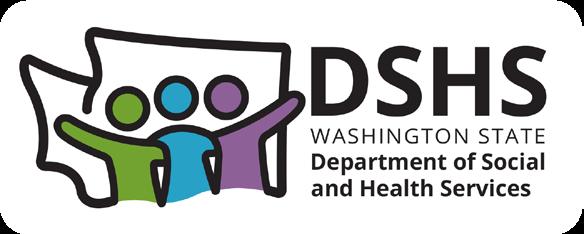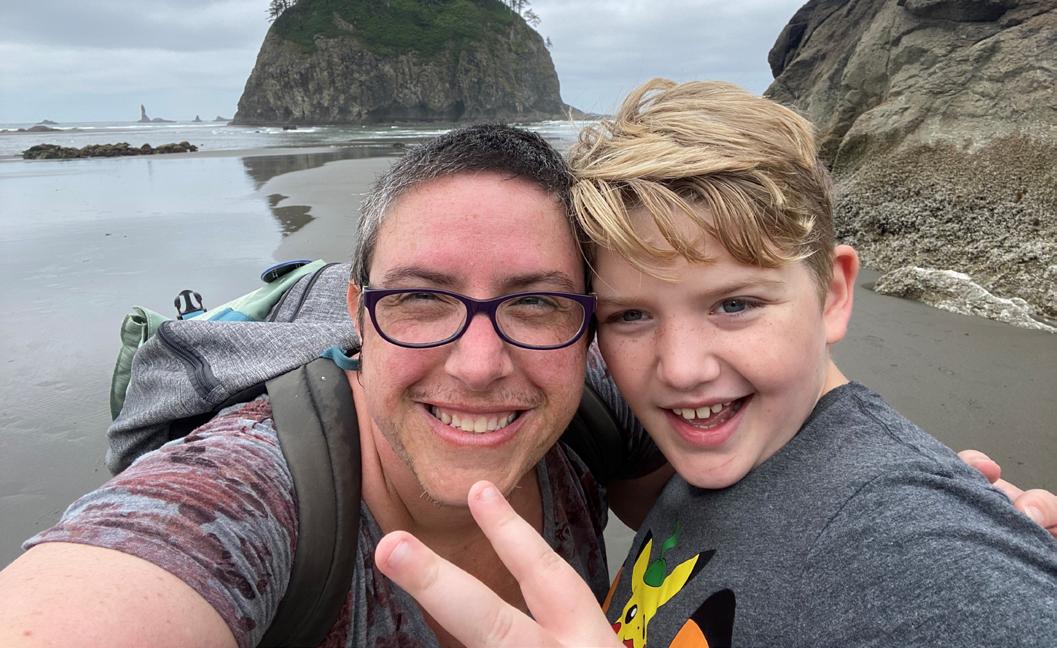
Learn how small actions can make a big impact on your serenity in 2025.
Explore the principles of Trauma-Informed Care and how they enhance support for vulnerable individuals.











Learn how small actions can make a big impact on your serenity in 2025.
Explore the principles of Trauma-Informed Care and how they enhance support for vulnerable individuals.









As professionals dedicated to the protection of vulnerable adults, we are acutely aware of the myriad challenges faced by those we serve. One pressing issue that demands our immediate attention is the trafficking of vulnerable adults within our communities.
Trafficking involves the exploitation of individuals through force, fraud, or coercion for labor, services, or commercial sex acts. Vulnerable adults, particularly those with cognitive impairments, physical disabilities, mental health conditions, or those experiencing social isolation and economic hardship, are at an increased risk. Our roles place us at the forefront of identifying and intervening in such situations.
The impact of trafficking on individuals is profound and multifaceted. Survivors may endure physical injuries, psychological trauma, and a significant loss of autonomy. These effects can lead to chronic health conditions, mental health disorders, and a diminished quality of life. The ramifications extend to our social services systems, increasing the demand for medical care, counseling, and long-term support.
Traffickers often exploit systemic vulnerabilities such as poverty, homelessness, substance use disorders, and lack of social support. Individuals lacking strong family ties or support networks are particularly susceptible. Economic disparities and limited access to essential resources create environments where exploitation can thrive.
In our daily interactions, vigilance is essential. Be attentive to the following signs that may indicate a person is being trafficked:
1. Social Isolation: The individual is restricted from engaging with friends, family, or community services without a reasonable explanation.
2. Control Over Personal Documentation: Lack of access to personal identification documents like IDs, passports, or financial records.
3. Unaddressed Medical Needs: Presence of untreated injuries, signs of physical abuse, or neglect without satisfactory explanations.
4. Financial Exploitation: Unusual financial activities, sudden debts, or discrepancies in financial accounts.
5. Behavioral Changes: Exhibiting fearfulness, anxiety, depression, or submissiveness, especially in the presence of specific individuals.
We all have a critical role in safeguarding vulnerable adults from trafficking. It is imperative that we remain vigilant, continually look for signs of exploitation, and take proactive steps to address them.
• Stay Vigilant and Observant: Pay close attention to the individuals you serve. Trust your instincts if something feels amiss, and don’t overlook subtle signs that may indicate trafficking.
• Educate Yourself Further: Enhance your understanding of trafficking by accessing additional resources and training. Knowledge empowers us to act effectively.
• Consult with Peers and Supervisors: Share information and strategies with colleagues to strengthen our collective response. A unified approach increases our effectiveness.
• Report and Document: Promptly report any suspicions to the appropriate authorities such as law enforcement if you suspect illegal activity. Accurate documentation is vital for successful interventions.
National Human Trafficking Hotline: The National Human Trafficking Hotline (NHTH) connects victims and survivors of sex and labor trafficking with services and supports for help and safety. Through their site, you can report a tip, access national statistics, and obtain safety planning information.
Polaris Project: Polaris operates the U.S. NHTH and has built the largest known dataset on human trafficking in North America. Take their free introductory course, Human Trafficking 101, to learn what human trafficking really is, how it happens, and how you can be part of the solution.
World Health Organization on Elder Abuse: Learn more about preventing abuse among older adults here.
By staying vigilant and informed, we can significantly impact the fight against vulnerable adult trafficking. I encourage each of you to utilize the resources available, continue your education on this critical issue, and remain steadfast in our shared commitment to protecting and empowering those we serve.



Paula Hughes, M.Ed., CDE Deputy Director
As we are in the midst of winter, it’s important that we support the vulnerable adults we serve. This can be simply by providing gentle reminders to help them stay safe and comfortable during the colder months. There are effective ways we can assist our clients through thoughtful communication.
1. Safe Heating Practices
• Heater Safety: Encourage clients to keep heaters at a safe distance from flammable materials and never leave them unattended.
2. Staying Hydrated
• Fluid Intake: Suggest that they continue to drink plenty of fluids, even if they don’t feel as thirsty in colder weather, to prevent dehydration.
3. Emergency Preparedness
• Power Outage Preparedness: Suggest clients to have basic supplies on hand, such as flashlights, extra batteries, warm blankets, and a list of emergency contacts, in case of power loss.
• Emergency Contacts: Encourage them to keep important phone numbers easily accessible.
4. Health Considerations
• Medication Management: Gently remind them to keep an adequate supply of their medications and to store them according to instructions.
5. Staying Warm Indoors and Outdoors
• Layering Clothing: Suggest wearing layers of clothing to retain body heat; especially while being outdoors
6. Preventing Falls
• Indoor Safety: Encourage clearing walkways of clutter to reduce the risk of trips and falls.
7. Staying Connected
• Regular Check-ins with people they trust and feel safe with.
Your compassionate engagement makes a significant difference in the vulnerable adults we serve. By providing some gentle reminders we help promote their safety and wellbeing during the winter season.
If you have any questions or need additional resources, please consult with your supervisor.

Submitted by Rebeca Estrada, PhD, Region 2 CIESM Program Manager
Happy 2025 everyone! As we begin a new year, many find that it is a good time to set goals or resolutions. While most will make a very valiant effort to achieve their resolutions, only about 10% of individuals are successful in making them a permanent habit. It is not because the goals aren’t good, they may just be overly ambitious. A way to overcome the challenges with setting resolutions or goals is to look at making micromovements or a 1% change. The idea is to identify small, incremental changes in habits, routines, or approaches, and implement them consistently over time. The concept emphasizes that minor changes, when added up over time, can lead to transformative results. James Clear, author of Atomic Habits, explains that tiny habits may feel inconsequential at first, but by maintaining them, we allow those small shifts to compound.
The appeal of the 1% change lies in its accessibility. Unlike attempts to make huge transformations, which can be daunting and often unsustainable, a 1% improvement is achievable and maintainable. For example, committing to reading just one page of a book each day, saving an extra dollar, or spending five minutes learning a new skill are all simple changes that can accumulate over time. According to research on habit formation by psychologist Wendy Wood, sustainable habits are more likely to be formed when they are small and easy to incorporate into daily life (Wood & Rünger, 2016).
Additionally, the 1% change encourages a growth mindset, an approach promoted by psychologist Carol Dweck. A growth mindset focuses on the potential for growth through consistent effort,
which supports small improvements. When a person focuses on improving incrementally rather than achieving perfection, they’re less likely to experience burnout or frustration, and more likely to remain engaged over the long term (Dweck, 2006).
1% changes can be applied across multiple areas— personal development, financial habits, fitness routines, or professional skills. For instance, in fitness, adding a few extra minutes to a workout, stretching for just a minute longer, or drinking an extra glass of water daily can lead to better health over time.
Making a 1% change is a powerful way to achieve long-term growth. It’s a manageable and realistic approach, reducing the psychological barrier to improvement and making it easier to maintain progress over time. By committing to small but consistent changes, individuals can see big results, proving that transformation is often best achieved one small step at a time.
If you would like to learn more about micromovements and making a 1% change, don’t hesitate to reach out to your regional CIESM Program Manager.
References:
Clear, J. (2018). Atomic Habits: An Easy & Proven Way to Build Good Habits & Break Bad Ones. Penguin.
Dweck, C. S. (2006). Mindset: The New Psychology of Success. Random House.
Wood, W., & Rünger, D. (2016). “Psychology of Habit.” Annual Review of Psychology, 67, 289-314.

submitted by Janice VanFrederic, APS Program
Unit Manager
In October 2024, the Quality Improvement Coordinators (QICs) transitioned from the ALTSA Office of the Assistant Secretary to the Adult Protective Services Division. QICs are now part of the APS Program Integrity, Performance, and Advancement (PIPA) Unit overseen by Office Chief, Victoria Gawlik Morse.
APS QI is tasked with examining processes within APS to identify areas of improvement and address system gaps. In collaboration with statewide leadership, the QI Unit creates Proficiency Improvement Plans (PIPs) based on quality assurance (QA) process reviews and guides APS in developing and implementing statewide policies, processes, and procedures to ensure compliance with all state and federal regulations, as well as agency and administration policies.
Why the transition? Incorporating QICs to APS was an intentional move to add robust skills and strategy to our division; with a dedicated team to implement continuous improvement APS will progress client outcomes, identify process redundancies, and create an APS service delivery model that is both lean, efficient, and embraces our mission. The QI Team aims to establish a sustainable framework for ongoing development
by pinpointing areas in need of improvement and assisting in creating appropriate countermeasures at all levels— headquarters, regional, and statewide.
I’d like to introduce the QI Team, Leia Jones, Steven Hauge, Jenni Amrine, and Frieda Banning. This team prides itself on collaboration, integrity, community, and supporting the field through efficient practices. Leia began her journey at DSHS working on the Quality Benchmark Program for APS and worked at Area Agency on Aging in Kansas. Steven is a former US Army Nurse and has been with the state for over 9 years bringing vital perspectives from different regions. Jenni was most recently a lead for Region 3 and worked as an APS investigator for nearly 5 years. Frieda’s experiences start with nursing and encompasses managing adult family homes, and her background also consists of auditing and compliance experience within the state.
From the first meeting with this team, I knew I was among natural agents of change; a group of people that had an admirable work ethic, the adaptability to shuffle and restart for the sake of the mission. I’m honored to be part of this team and cannot wait to see what 2025 has in store. If you see meetings on your calendar with me or members of this team, always remember, our meetings are about gathering data to make changes to a system, procedure, policy, or work process. Without your
voice and input on our service model, making systematic change and improvement wouldn’t make sense. Thank you for knocking on doors, thank you for answering phone calls, and thank you for checking on our community members; we never know what someone is truly going through.
The APS SharePoint Hub site will be fully migrated to its final destination. Stay tuned for more information coming soon.
Each of us has a reason that we choose to work for APS. Please share your “Why” on SharePoint: What brought you to APS? What inspires you to serve Washington’s vulnerable adult population? Share your “Why” on SharePoint to help strengthen our community and inspire your fellow APS staff.
The newly formed APS Program Integrity, Performance, and Advancement (PIPA) Unit has been working on a SharePoint project to compile resources for investigators and intake staff. The APS Resource Hub contains links to systems used for documentation and searches, policies and legislation that guide APS work, resources to support vulnerable adults, and much more!
The Resource Hub will be a continuous work in progress. If you have a resource that you find useful, please share with the PIPA Unit at APSPIPA@dshs.wa.gov and we will add it to the Resource Hub.

Grab a cup of coffee and call-in to chat with APS Director Kathy Morgan!
Please join this casual quarterly event to stay informed of APS Division’s current events and the opportunity to ask your questions. Quarterly Staff Updates: 2025 Dates
WINTER 9:00am - 10:00am Tuesday, January 28



Mandy Weeks-Green recently joined APS from the Health Care Authority’s Policy Division where she managed the Public Option Health Plan available on the Washington Health Benefit Exchange. She was a member of the Universal Health Care Commission and the Health Care Cost Transparency Board. Mandy served as a senior health policy analyst and enforcement attorney for the Office of the Insurance Commissioner and as an assistant attorney general. She also served as a legal aid attorney in Oregon and as a public defender in the State of Alaska. Mandy is dedicated to public service and is committed to serving the people of Washington State.
During her free time, Mandy enjoys gardening, dog hikes, attempting to write her not-so-great American novel, and canning (to store all that she grows in her garden).


Heidi Bansmer embarked on her APS journey in 2017 as an investigator and quickly advanced to a supervisor in 2018. With dedication and effort, she has shaped a diverse group of professionals into a cohesive, person-centered team that excels in the realm of adult protective services. Her leadership is marked by transparent and open communication, supporting each team member while emphasizing accountability. Heidi’s opendoor policy fosters an environment where she’s readily available to assist, whether on individual tasks or collective projects. She leads by example, even in tough situations, offering positive support, active listening, and an open mind, allowing the team to collaboratively find solutions.
Heidi continues to nurture a team-oriented atmosphere, bridging the gap between seasoned staff and newcomers. She adeptly guides her team through policy interpretation and process, ensuring positive investigation outcomes. As a hands-on coach, Heidi demonstrates and follows through, showing the importance of accountability in decisions and processes. A staunch advocate for her staff, she makes time for each member, addressing their concerns and issues. Her transparent and motivational leadership has earned her the reputation of a “go-to” supervisor, uniting her team and others to work collectively for the greater good. Region 1 is fortunate to have Heidi!


Jennifer Martin has been with Region 2 since January 2024 as the Administrative Assistant 3. In the first few days, we knew she was a great hire. Jennifer is attentive, proactive, eager to learn, and willing to pitch in with whatever is needed. Whenever something comes up, Jennifer is always there asking how she can help. She is amazing with her organizational skills, attention to detail, and follow-through. Over the past year, Jennifer temporarily took on additional responsibilities to fill in for vacant positions. She quickly learned how to complete new tasks and where to go when she needed assistance. She oversaw the 2024 Annual Combined Fund Drive Campaign for Region 2 and organized a food drive that benefited three local food banks.
Jennifer cultivates and creates the regional quarterly newsletter making it fun, informative, and is talented with filling in the pages with content. She keeps us apprise on the hiring status and reminders for staff engagement chats. Jennifer was essential with the 2024 APS Conference setup. She jumped in without hesitation with such a positive attitude and a smile, which set a great tone for the team. She worked seamlessly with other conference members and was incredibly well coordinated taking initiative from start to finish. As a new staff attending her first APS Conference, we were thoroughly impressed by her dedication and teamwork. We feel very lucky to have Jennifer in Region 2.

“Jake” Stevens has proved to be a strong, supportive investigator. He loves the positive impact he can make in people’s lives. For our vulnerable adults, their families, and even the alleged perpetrators, Jake has a calm demeanor which not only helps de-escalate situations, but also helps others be more receptive to the protective services APS offers. Most recently, Jake had a huge win for a client as he coordinated a quick and effective intervention with law enforcement assistance. Jake was able to get the client to a hospital and removed from the hazardous and unsafe home he resided in by collaborating with the arrest warrant for the alleged perpetrator. Jake completed all of this within days of receiving the case. Within two months, the client went from a dilapidated and unsanitary living situation to residing comfortably with other protective family – which is a true reward in our industry!
In addition, Jake regularly volunteers to assist his peers in whatever capacity he can, always willing to have new hires shadow him in the field, takes on transfer projects, and consistently works his own cases with integrity. Jake is a true model of great leadership for the department.

For those of you who are Seinfeld fans, that exclamation may bring a smile to your face. The new year is here, and I am ready to maximize my serenity. That will enhance my ability to work in alignment with our DSHS values while embracing the core elements of equity, diversity, access and inclusion. Aside from that benefit, serenity will help clear a path to a more resilient Claire who can weather the challenges of the hard work that we do. Let me share my 12 tips for making 2025 my Year of Serenity. Perhaps one or more will resonate with you and we can feed on the positive energy that we create together. Many of you may know that I believe that many deliberate small actions can have big impact on our division!
Submitted by Claire Knight, PEAR Strategic Alignment Administrator
Maintain connection to my values. Know which of my values are satisfied through this work and remind myself that each day I get the opportunity to operationalize those values.
Exercise positive choice. In a 2023 article, the Harvard Business Review offered that the average adult makes 33,000 to 35,000 choices per day! I would reap benefit from making more of mine positive, conscious choices.
Work on being more resilient. I will remind myself that I have done difficult things before and will continue that trend. In truth, I have a 100% record of making it through challenges - I am here, after all! If you’re reading this, so are you.
Bask in my successes. When something goes well - I will take the time to sit with that positive feeling, not just choose to quickly allow that feeling to pass through me, then sit for hours/days with the negative feelings that may come when something does not go as well.
Be sympathetic. When we feel stress, we can get tunnel vision and forget the plight(s) of others. That can increase frustration, loneliness and make problems feel insurmountable.
Examine the stories that I am telling myself. What I truly believe, is manifested. I naturally see confirmation in the world of whatever I believe. Recognizing the stories I tell myself will help me slash those assumptions that creep in as well and ask more curious questions.
Minimize sweeping, negative self-talk. The always and never comments, speaking of myself as being static instead of evolving is quite detrimental
Release perfection. It isn’t a thing, folks! I will make errors, you will make errors, we all will make errors. We aim for excellence and growth, not perfection.
Tap into positive supports. That may be a friend, a colleague, a supervisor, the Critical Incident Stress Management (CISM) Program Manager.
Express gratitude. Thank someone unexpectedly. A wise friend shared that it is difficult to feel negative emotions while we are actively feeling and expressing gratitude. This is worth an experiment.
Spread joy. It can become the norm to speak negatively about others, their efforts, their intentions, their work. I can choose to find that positive thing to share rather than something negative.
Conduct myself like the influencer I am. I am responsible for what I bring to each space I occupy. Think of the APS that I want for myself and others, then be mindful of how I can help move us in that direction.

APS is a rewarding and busy place to work. Field visits, phone calls, case notes, case staffing, meetings, and deadlines are a part of the daily routine with technology being at the center of much of what we do. When an application isn’t working properly, it can throw an unexpected complication and frustration into an already hectic day. You submit a help desk ticket to seek a solution and then you wait… which can be a frustration of its own. Here’s some information to remove the mystery and frustration from the process.
What happens after you report an issue?
The process depends on what choice is selected in the dropdown menu which determines where the ticket is routed to. Some tickets are routed to the regional help desk for first tier review to determine if they have the ability to resolve the issue(s). Other tickets are routed directly to the APS/TIVA2 help desk folder that is monitored throughout the day to prioritize and address TIVA2 issues as quickly as possible.
How long does it take to get a resolution?
Depending on the volume of tickets received and the availability of the support team, some issues are resolved in a matter of minutes (e.g. password resets). Other issues are set aside to be addressed in a batch such as document deletions. Complex tickets take a bit more research or consultation with the development team before they can be resolved. Staff will be notified of when the team is able to start working on the issue and we attempt to keep staff updated as to when a resolution may occur which could take several days or weeks, depending on the issue.
What can you do to help speed up the process?
Unfortunately, some help desk tickets are submitted with vague or incomplete information, requiring our team to reach out for more details before proceeding towards a resolution. With many of APS staff spending a good portion of the day in the field, this can delay our response times.
To greatly speed up our response, include the following details when creating a help desk ticket :
• Intake or investigation ID related to your concern(s)
• Details on the specific issue(s)
• Any steps you have taken to resolve it
Example ticket details:
“For the last 2 days with investigation 123456, when I click the plus sign to add a request for information letter, I receive a popup message that says I am not authorized to edit the investigation. I have logged out of TIVA2 and restarted my computer, but the issue continues to occur.”
If a specific error message or other information is displayed on your screen related to the issue, please provide a screenshot of the details and attach it to the ticket. This may also assist our team in finding a resolution timely. By providing these key details allows the team to quickly assess the problem and research possible solutions without delay.
What if I don’t hear back quickly or it’s an emergency?
If you have not heard about the status of your ticket in within 24 hours after submission, go to the Help Desk Application and input a comment on your ticket. This will send the Data and Operations Team an email notification that the ticket has been updated and brought to our attention.

You can also email the APS/TIVA2 Help Desk Team at APSDataSupport@dshs.wa.gov to inquire about the status of your ticket or to notify us of an urgent need for escalation.

A little compassion and professionalism can go a long way in transforming the lives of Washington’s vulnerable adults
An investigator worked on a case to overcome challenging barriers for a client who wanted to remain in his own home. The client was obese with a leg injury causing immobility and experiencing additional health concerns. While he was hospitalized, he declined a facility placement and returned to his home. He was active on long-term care services but did not have caregivers due to the conditions of his home. The client was not responding to in-person attempts. When the investigator connected with him over the phone, he said he was fine. He agreed to meet with the investigator the next day, if she called in advance. Meanwhile, APS received additional reports expressing concerns of the client bed bound and unable to use the bathroom. When the investigator called the client, he said he wanted to go to the hospital and would not be able to see her, but she could see him at the hospital. The investigator called the client multiple times but when he did not answer she began checking hospitals to find out where he was admitted.
The investigator discovered that he remained at his apartment. As she connected with him over the phone, he asked for help to make his apartment safe to obtain caregivers. When she confirmed she was able to assist with his request, he agreed to meet with the investigator. As the investigator entered the apartment, she saw the hazardous conditions he was living in. The client agreed to allow the investigator to coordinate with his primary physician for a rehab placement and for his home to be cleaned. She also coordinated with the landlord and case manager to address the hazardous conditions of his home. The case manager was able to get a walk-in shower installed and caregiving services in place. The investigator’s diligence, collaboration, and repeated efforts to ensure the client’s safety, allowed for the protective services finally to be implemented.
An investigator connected with a client at a local homeless shelter and worked diligently in coordination with a Northwest Regional Council (NWRC) case manager to find

housing for a client through the local mental health residential and treatment center. They were able to provide more supported and case managed housing for the client, and possibly obtain caregiving services.
The investigator also connected with the Community Choice Guide (CCG) who recently visited the client after her move to supportive housing and stated the “AV looked the best she had ever seen.” In coordination with NWRC, the local mental health residential and treatment center, and the CCG, the investigator was able to help navigate and facilitate services for the client who is now safely housed and receiving caregiving services.
An investigator wrapped up work on multiple cases related to an unlicensed adult family home owner for allegations of neglect. The alleged perpetrator was failing to provide comfort care measures as prescribed to residents who were on hospice. The alleged perpetrator reportedly did not properly administer medications by failing to have
nurse delegation in place, not following the prescriptions, failing to log the administration and taking the residents medications for her own use. The lack of proper medication administration caused some residents to experience pain, restlessness and discomfort for multiple days while they were in process of dying.
There were additional allegations involving the alleged perpetrator not repositioning or transferring the residents safely, resulting in falls and bed sores. The investigator collaborated closely with the Department of Health, Department of Licensing, Residential Care Services and law enforcement resulting in substantiating three cases against the alleged perpetrator.

Submitted by: Leslie DeMarco, LMHC
APS Mental Health Transformation Policy Program Manager
Trauma-Informed Care (TIC) is an approach to professional service delivery that recognizes and responds to the widespread impact of trauma on individuals. TIC emphasizes creating environments that are safe, supportive, and conducive to treatment and intervention participation. TIC principles include understanding trauma’s effect on behavior and health, avoiding re-traumatization, and promoting resiliency and empowerment.
1. Safety - Ensuring the physical, emotional, and psychological safety of alleged victims, alleged perpetrators, and APS staff.
2. Trustworthiness and Transparency - Building trust between alleged victims, alleged perpetrators, and APS staff.
3. Peer Support - Incorporating individuals with lived experience of trauma into the service process i.e. peer counselors at mental health and/or substance use disorder (SUD) agencies, natural support systems such as family, friends, advocates, case managers, or other identified supports by the alleged victims or alleged perpetrators.
4. Collaboration and Mutuality - APS workers partner with alleged victims and alleged perpetrators by recognizing and validating their role in their own recovery.
5. Empowerment, Voice, and Choice - Emphasizing the alleged victim and alleged perpetrators’ strengths and allowing them to participate in decisions affecting their care when offering protective services and service referrals.
6. Cultural, Historical, and Gender Sensitivity - Recognizing and addressing the impact of societal and cultural factors on how a person experiences trauma.
In the context of TIC, trauma is defined as an experience or event, or a series of events, that overwhelms a person’s ability to cope, resulting in lasting negative effects on their physical, emotional, or mental wellbeing. Trauma can arise from a variety of sources, such as abuse, neglect, violence, loss, natural disasters, discrimination, physical and/or mental health emergencies, or chronic stress. Trauma can affect how a person perceives and interacts with the world.
Trauma is not only defined by the event itself but also the person’s subjective response to it. This means that two people may experience the same event, but it can be traumatic for one and not for the other, depending on factors such as their prior experiences, coping mechanisms, and existing support systems. In TIC, trauma is understood as having potential long-term effects on brain function, behavior, health, and relationships. When APS workers offer protective services and service referrals, a TIC approach is having an awareness of the impacts of potential trauma to avoid re-traumatization which can result in improved participation in the investigative process, and increased engagement when offering protective services and service referrals.
Cultural humility is essential in TIC because it recognizes and respects the diverse backgrounds, values, and experiences of individuals receiving care. Trauma does not occur in a vacuum; it is often shaped by cultural, historical, and society contexts. Cultural humility ensures that service providers approach each person with an open mind, understanding that trauma is experienced and expressed differently across cultures, and that healing practices can also vary. Cultural humility within TIC, ensures that service delivery is respectful, relevant, and responsive to the needs of diverse populations, which is a crucial component of trauma recovery.
1. Acknowledgement of Diverse Trauma Experiences - Trauma is influenced by cultural, racial, gender, and socio-economic factors. Cultural humility allows APS workers to understand how systemic issues like racism, discrimination, and historical oppression can contribute to trauma and influence a person’s healing process.
2. Reducing Bias and Assumptions - By practicing cultural humility, APS Workers avoid making assumptions based on a person’s cultural background. This approach fosters an attitude of curiosity and respect, leading to more personalized and effective interventions.
3. Enhances Alleged Victim and Alleged Perpetrator Relationship with APS Workers - Cultural humility promotes trust and mutual respect, key components of the TIC framework. When people feel understood and respected within their own cultural context, they are more likely to engage in the investigation, protective services, and service referrals.
4. Supports Empowerment and Voice - Culturally responsive care encourages people to share their perspectives and preferences and allows them to be active participants in services. This aligns with TIC goal of empowering alleged victims and alleged perpetrators by giving them a voice during investigations and which protective services or referrals available to them.
5. Addresses Historical and Intergenerational Trauma - Many communities, particularly Indigenous, Black, and immigrant populations, have experienced trauma on a collective level, including historical trauma passed down through generations. Cultural humility helps APS workers understand these complex layers of trauma and incorporate them into the service delivery process.
References & Additional Resources
Center for Healthcare Strategies (2024). Trauma-Informed Care Implementation Resource Center. Link
Ranjbar, N., Erb, M., Mohammad, O., & Moreno, F. A. (2020). Trauma-Informed Care and Cultural Humility in the Mental Health Care of People From Minoritized Communities. Focus, 18(1), 8–15. Link
SAMHSA’s Trauma and Justice Strategic Initiative (July 2014). SAMHSA’s Concept of Trauma and Guidance for a Trauma-Informed Approach. Link
University of Oregon: Division of Equity and Inclusion (2024). What is Cultural Humility? The Basics. LIink


Meet Kristen Sinclair: Building Bridges with Compassion, Technology, and Inclusion
AtAPS, it’s important for everyone to feel valued, respected, and heard. This includes the people we serve and the team members who do this critical work daily. Kristen Sinclair, who began working as a Management Analyst with APS in July 2024, shows how bringing your full self to the job can strengthen an entire organization. Her life story, skills, and identity help APS find new and creative ways to protect and support vulnerable adults who need assistance.
Kristen is a person who has lived in many places and tried many things. She grew up as the child of a military parent and spent time in a very small town in rural Georgia. Later, she moved around the country several times and eventually earned an English degree from the University of Georgia. Before joining APS, she worked as an Application Developer, Project Manager, Business Analyst, and Administrative Support. She also helped create
useful reports and tools, including systems to manage personal protective equipment during the COVID-19 pandemic and supported efforts to assist people who were refugees from Afghanistan. These varied experiences have shaped who she is and how she works.
Kristen is a person who identifies as queer, enjoys “nerdy” interests like science fiction and games, and experiences neurodivergence. Growing up, she saw how understanding differences and building community can make a real difference. She helped start a Gay-Straight Alliance at her local college in high school. This helped her see the importance of creating welcoming spaces for everyone. Over time, she learned to accept all parts of herself, including her neurodivergence. She realized that hiding who she was took a lot of energy that could be used more effectively if she felt comfortable and supported.
Family plays a big part in Kristen’s life. She is proud to be an aunt and stays close to her nieces and nephews even though they live far away. They stay in touch through texting and playing video games together, and she is thrilled that her oldest nephew Ian will be joining her on a trip to Scandinavia. At home, Kristen shares her life with two dogs: Bonnie, a friendly lab and basset hound mix, and Tyrion, a lively dachshund who keeps everyone on their toes. She also enjoys exploring Washington’s outdoors, practicing yoga, and diving into her many interests, from reading non-fiction to learning new languages.

Kristen’s background in English and her work in technology help her explain complicated ideas in simple terms. When APS staff need new tools or systems, she can listen to what they need and use technology like Microsoft’s Power Platform and SharePoint to build easy-to-use solutions. Kristen loves finding ways to make work more efficient, such as creating quick online tools or writing helpful instruction manuals. She believes that using existing resources smartly can save everyone time and effort.
Kristen is inspired by the staff at APS who put vulnerable adults who need assistance at the center of everything they do. Her team, the Program Integrity, Performance, and Advancement (PIPA) Unit supports staff in many

ways—from improving how people are hired to creating better partnerships and tools. Kristen encourages staff who have a problem to solve or a new idea to share it, believing that many minds working together can find the best answers.
Kristen loves living in Washington, where many people accept and respect each other. She believes that feeling supported and safe allows individuals to share their best ideas. When she’s not at work, Kristen enjoys exploring new places, listening to educational podcasts, and soaking up the beauty of the Pacific Northwest. She values staying connected with others and learning from their experiences.
By welcoming all backgrounds, skills, and viewpoints, APS can do an even better job serving people needing assistance. Kristen Sinclair’s story shows how embracing who you are and what you bring to the table can lead to stronger teams and more meaningful support for the community.
